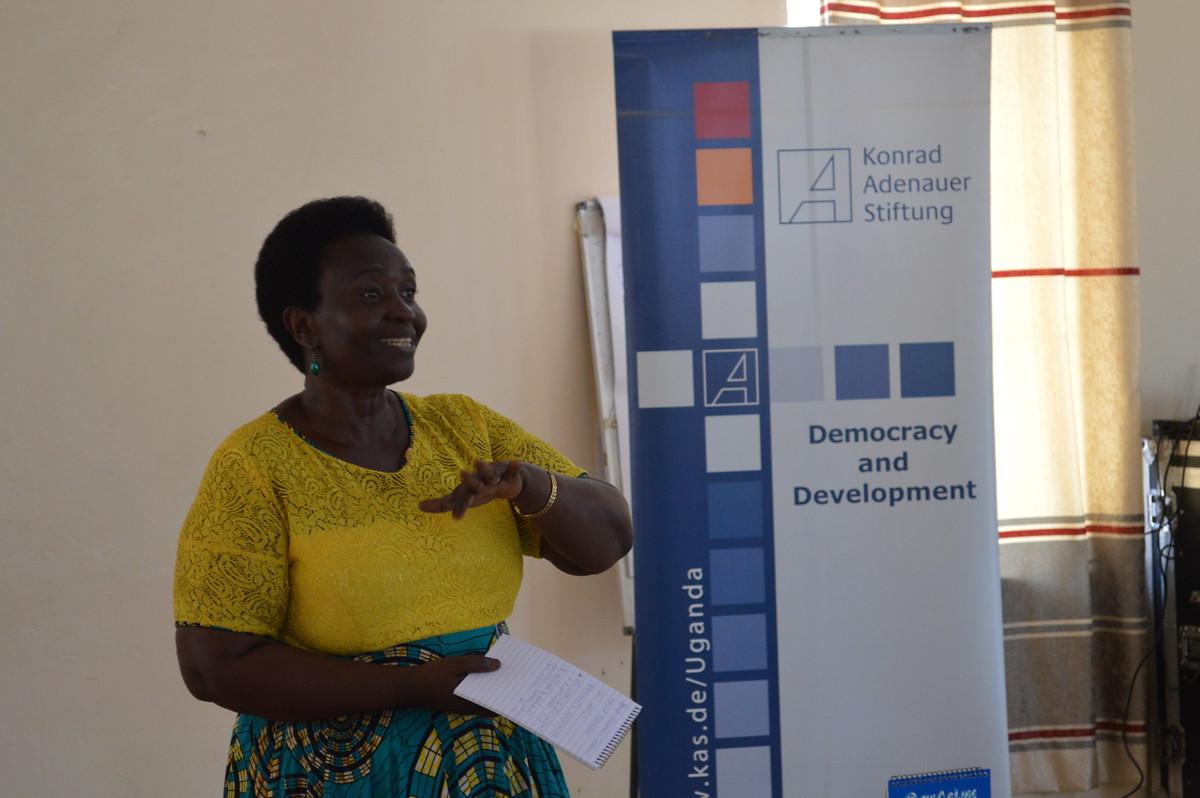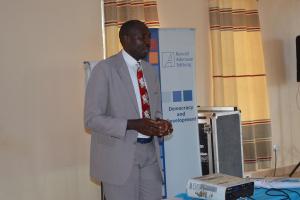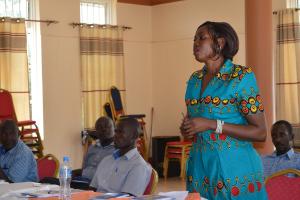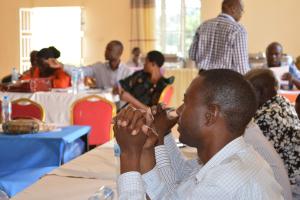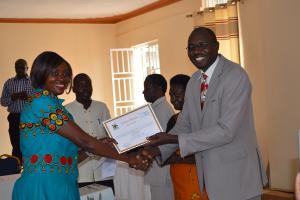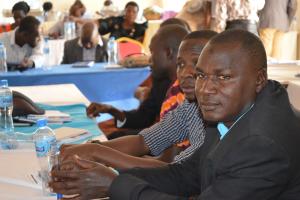MULTIPARTYISM IN UGANDA - Foundation Office Uganda and South Sudan
Event Reports
The latest workshop on good governance on the local level was held in Iganga on the 24th – 25th August 2017. Participants included councilmembers from three sub-counties in Busoga sub-region. Opening the workshop, John Oyambi from the DNG highlighted the importance of democratic thinking for the development and prosperity of a nation. The interest and active participation of councilmembers was crucial, according to Oyambi, for the democratisation of an entire society. KAS country director, Mathias Kamp agreed and argued that democracy only works when the people fully understand its implications since ‘a democracy needs democrats’. Mr Kamp added that as representatives of their communities, councilmembers must lead by example, to ensure that good governance reaches all levels of society.
The opening remarks were followed by a presentation on good governance in a multiparty democratic dispensation by Dr Milton Mutto, an expert on the decentralised government system of Uganda. The presentation provided a basic understanding of the rights and duties of councilmembers as representatives of their communities. Dr Mutto offered comprehensive definitions on concepts such as civic education, democracy in a multiparty setting, and what it means to be a ‘good citizen’. Participants were encouraged to share their personal views on what the goals of civic education should be. Answers ranged from having moral authority and a communal mind-set, to being informed, patriotic, and most prominently, being proactive.
Dr Mutto also highlighted the three main elements of civic education namely: teaching civic knowledge, values and skills. He argued for the importance of teaching civic education already in schools, and the shared responsibility of councilmembers, civil society organisations, and the local government to implement civic awareness on the grassroots level. This, according to Dr Mutto, would ensure that citizens become actively involved in the governance of their community, instead of being passive spectators. While discussing the several obstacles that constrain multiparty democratic practice, participants noted that due to a general lack of perspective and knowledge, especially among the youth, good governance becomes difficult to attain. One participant stressed the importance of engaging the youth more, since they make up the majority of Uganda’s population. Dr Mutto agreed that young people often feel lost and underrepresented in both local and national governments, and insisted that community elders must become more proactive in engaging the youth. The expert remarked that the local government could do their part by allocating more money to the education system. Participants also argued that more support and guidance is needed from the central government to implement civic awareness. Dr Mutto concluded his presentation by stating that ‘civically aware people build nations’.
Following Dr Mutto’s presentation, J. J. Bakalikwira emphasised the importance of being proactive as councilmembers, and not only relying on incentives and initiatives from the central government. Mr Bakalikwira also reiterated the importance of national values as uniting and guiding tools for better governance. One participant was critical of Mr Bakalikwira’s argument that the central government ensures enough provisions for civic education, asserting that the central government often paints a distorted picture of the support they give to local communities to spread civic awareness.
The second day of the workshop commenced with an extensive overview of the definition, characteristics, and principles of democracy by Dr Mutto. Particular emphasis was given to political pluralism, the role of the opposition as providers of criticism and alternatives, as well as the importance of mutual respect and cooperation between the ruling party and the opposition for good governance. Richard Ssango Ssali followed with a presentation on the role of elected and appointed leaders as accountable, transparent, reflective, and open representatives of their communities. Ssali also encouraged participants to strive for mutual respect, teamwork, and regular consultation with other councilmembers even if they belong to a different party, as this has a positive effect on service delivery and good governance. In his concluding remarks, Richard Ssali reminded the participants that leaders who are responsive to the needs of their people will ensure prosperity for themselves and their community.
J.J. Bakalikwira followed with a second presentation on peacebuilding and conflict resolution on the local level. He highlighted the importance of peaceful and cordial confrontation and interaction between different political parties, as this is key to strengthening good governance and democracy. In the subsequent discussion, participants agreed that the inclusive participation of all councilmembers is crucial.
In his closing remarks, Hon Patrick Kayembe, the LCV Chairperson of Iganga, reminded the participants that while good governance policies are present on paper, councilmembers and ordinary citizens need to be aware of the reality of contemporary politics and must continue to do their part in ensuring good governance in a multiparty system. Hon. Kayembe called on the participants to take up responsibility to spread civic awareness to their communities, ‘only then can the Ugandan society move forward’.
Report compiled by Leandra Bitahwa



